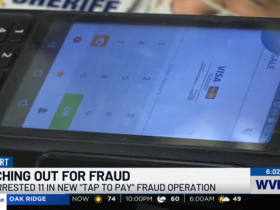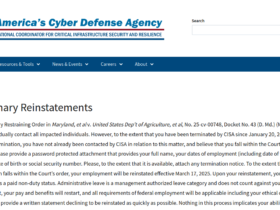Understanding The Legal Implications Of Doxing
Doxing, the act of publicly revealing private or identifying information about an individual without their consent, has become a significant concern in the digital age. As the internet continues to evolve, the legal implications of doxing have garnered increased attention from lawmakers, legal professionals, and the general public. Understanding these implications is crucial for both potential victims and those who might inadvertently engage in such activities.
To begin with, it is essential to recognize that doxing can lead to severe consequences for the individuals targeted. The exposure of personal information, such as home addresses, phone numbers, and social security numbers, can result in harassment, identity theft, and even physical harm. Consequently, many jurisdictions have started to address doxing through specific legislation or by applying existing laws related to harassment, stalking, and privacy violations.
In the United States, for instance, there is no federal law explicitly prohibiting doxing. However, various federal statutes can be applied to cases of doxing, depending on the circumstances. The Computer Fraud and Abuse Act (CFAA) is one such statute that can be invoked if the doxing involves unauthorized access to a computer system to obtain the victim’s information. Additionally, the Interstate Communications Act can be used to prosecute individuals who use interstate communications to threaten or harass someone, which can encompass doxing activities.
Moreover, several states have enacted their own laws to combat doxing. For example, California’s Penal Code Section 653.2 makes it a crime to use an electronic device to intentionally place another person in fear for their safety by distributing their personal information. Similarly, in Washington State, the Cyberstalking law includes provisions that can be applied to doxing cases. These state-level laws reflect a growing recognition of the need to protect individuals from the harmful effects of doxing.
Transitioning to the international perspective, it is evident that different countries have adopted various approaches to address doxing. In the European Union, the General Data Protection Regulation (GDPR) provides a robust framework for protecting personal data. Under the GDPR, the unauthorized disclosure of personal information can lead to significant fines and legal actions against the perpetrators. This regulation underscores the importance of consent and the right to privacy, which are central to the issue of doxing.
Furthermore, countries like Canada and Australia have also taken steps to address doxing through their legal systems. In Canada, the Personal Information Protection and Electronic Documents Act (PIPEDA) governs the collection, use, and disclosure of personal information in the private sector. Violations of PIPEDA can result in investigations and penalties by the Office of the Privacy Commissioner of Canada. In Australia, the Enhancing Online Safety Act provides mechanisms for individuals to report and seek redress for online harassment, including doxing.
It is also worth noting that the legal landscape surrounding doxing is continually evolving. As technology advances and new forms of online behavior emerge, lawmakers and courts must adapt to address these challenges effectively. This dynamic nature of the legal system means that individuals and organizations must stay informed about the latest developments to ensure compliance and protect themselves from potential legal repercussions.
In conclusion, the legal implications of doxing are complex and multifaceted, encompassing various statutes and regulations at both national and international levels. As awareness of the harmful effects of doxing grows, so too does the need for robust legal frameworks to address this issue. By understanding the legal landscape and staying informed about ongoing developments, individuals can better navigate the challenges posed by doxing and contribute to a safer online environment.
How To Protect Your Personal Information From Doxing
In the digital age, the threat of doxing—where an individual’s private information is maliciously exposed online—has become increasingly prevalent. Protecting personal information from such invasions of privacy is paramount. To mitigate the risk of doxing, it is essential to adopt a multi-faceted approach that encompasses both proactive and reactive strategies.
Firstly, it is crucial to understand the types of information that are typically targeted by doxers. This includes, but is not limited to, home addresses, phone numbers, email addresses, social security numbers, and even employment details. By recognizing the value of this information, individuals can take steps to safeguard it more effectively. One of the most fundamental measures is to limit the amount of personal information shared on social media platforms. While it may be tempting to post about daily activities or share personal milestones, doing so can inadvertently provide doxers with the data they need. Adjusting privacy settings to restrict who can view your posts and personal details is a prudent step in this direction.
Moreover, the use of strong, unique passwords for different online accounts cannot be overstated. Passwords should be a combination of letters, numbers, and special characters, and should not be easily guessable. Utilizing a password manager can help in maintaining complex passwords without the need to remember each one individually. Additionally, enabling two-factor authentication (2FA) adds an extra layer of security, making it significantly harder for unauthorized individuals to gain access to your accounts.
Another critical aspect of protecting personal information is being vigilant about phishing attempts. Phishing is a common tactic used by doxers to trick individuals into revealing sensitive information. These attempts often come in the form of seemingly legitimate emails or messages that prompt the recipient to click on a link or download an attachment. To avoid falling victim to phishing, it is important to scrutinize the source of any unsolicited communication and to avoid clicking on links or downloading files from unknown or suspicious sources.
Furthermore, regularly monitoring your online presence can help in identifying and addressing potential vulnerabilities. Conducting periodic searches of your name and other personal details can reveal if any of your information has been exposed. If you discover that your information has been compromised, taking immediate action to remove it from public view is essential. This may involve contacting website administrators or using online services that specialize in removing personal information from the internet.
In addition to these measures, it is advisable to be cautious about the information shared with third-party applications and websites. Many apps request access to personal data that may not be necessary for their functionality. Reviewing the permissions requested by these apps and limiting access to only what is essential can reduce the risk of data exposure. Similarly, being mindful of the information shared during online transactions and ensuring that websites are secure (indicated by “https” in the URL) can further protect personal data.
Lastly, educating oneself about the latest trends and tactics used by doxers can enhance one’s ability to stay ahead of potential threats. Staying informed through reputable sources and participating in cybersecurity awareness programs can provide valuable insights into emerging risks and effective countermeasures.
In conclusion, protecting personal information from doxing requires a comprehensive approach that includes limiting the sharing of personal details, using strong passwords and 2FA, being vigilant against phishing, monitoring one’s online presence, and being cautious with third-party apps and websites. By adopting these strategies, individuals can significantly reduce the risk of falling victim to doxing and safeguard their privacy in an increasingly interconnected world.
The Psychological Impact Of Being Doxed
The act of doxing, which involves publicly revealing private information about an individual without their consent, has become an increasingly prevalent issue in the digital age. The psychological impact of being doxed can be profound and multifaceted, affecting victims in numerous ways. Initially, the immediate reaction to being doxed often includes shock and disbelief. The sudden exposure of personal details, such as home addresses, phone numbers, and even financial information, can leave individuals feeling vulnerable and violated. This sense of exposure can lead to heightened anxiety and fear, as victims may worry about potential physical harm or harassment from those who now have access to their private information.
As the initial shock subsides, the emotional toll of being doxed can manifest in various forms of psychological distress. Many victims experience heightened levels of stress and anxiety, which can interfere with their daily lives and overall well-being. The constant fear of being targeted or harassed can lead to hypervigilance, where individuals are perpetually on edge and unable to relax. This state of heightened alertness can be mentally exhausting and may contribute to the development of anxiety disorders or exacerbate pre-existing conditions.
Moreover, the public nature of doxing can lead to feelings of humiliation and shame. Victims may feel exposed and judged by others, leading to a diminished sense of self-worth and self-esteem. This can be particularly damaging if the doxing incident involves the release of sensitive or embarrassing information. The fear of social ostracism and the potential for reputational damage can further compound these feelings, making it difficult for victims to regain their sense of normalcy and confidence.
In addition to the emotional and psychological impact, being doxed can also have significant social consequences. Victims may withdraw from social interactions and isolate themselves from friends and family out of fear of further exposure or judgment. This social withdrawal can lead to feelings of loneliness and depression, as individuals struggle to cope with the aftermath of the doxing incident. The loss of social support can exacerbate the psychological distress experienced by victims, making it even more challenging to recover from the trauma.
Furthermore, the long-term effects of being doxed can be far-reaching. The persistent fear of being targeted again can lead to chronic stress and anxiety, which can have detrimental effects on both mental and physical health. Victims may develop symptoms of post-traumatic stress disorder (PTSD), including flashbacks, nightmares, and severe anxiety. The constant state of fear and hypervigilance can also lead to physical health issues, such as headaches, gastrointestinal problems, and a weakened immune system.
In conclusion, the psychological impact of being doxed is a complex and multifaceted issue that can have profound and lasting effects on victims. The initial shock and vulnerability, coupled with the emotional distress and social consequences, can lead to a range of psychological issues, including anxiety, depression, and PTSD. The long-term effects of chronic stress and fear can further exacerbate these issues, making it essential for victims to seek support and resources to help them cope with the aftermath of being doxed. As the digital landscape continues to evolve, it is crucial to raise awareness about the serious implications of doxing and to promote measures that protect individuals’ privacy and well-being online.














